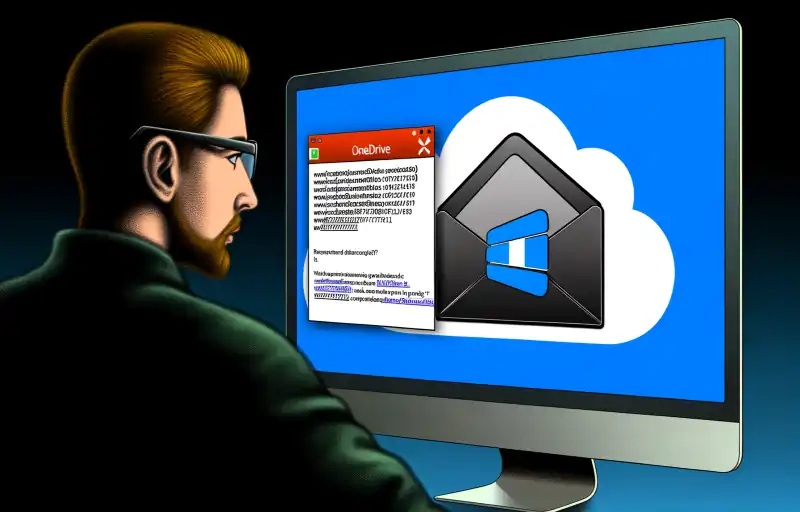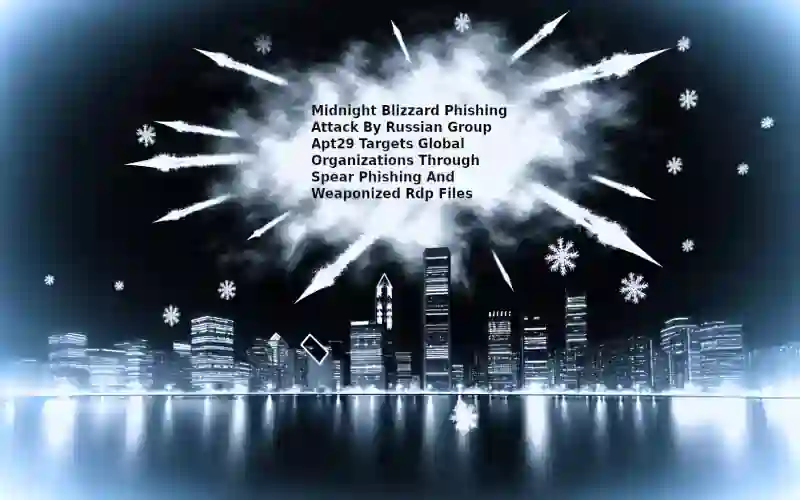
“Guard Your Data: Beware the Sophisticated Phishing Scheme Targeting OneDrive Users with Malicious Scripts”
Sophisticated Phishing Campaigns: How Cybercriminals Use Social Engineering to Exploit Microsoft OneDrive Users
In a concerning development for cybersecurity, a sophisticated phishing campaign has been targeting Microsoft OneDrive users, employing advanced social engineering tactics to trick victims into executing malicious PowerShell scripts. This new wave of cyberattacks highlights the evolving sophistication of online threats and underscores the need for heightened vigilance among all internet users.
The campaign begins with seemingly unharmful emails that appear to be from Microsoft. These emails are crafted with a high degree of authenticity, complete with logos and formatting that mimic official communication from the tech giant. The messages typically alert the recipient to an urgent issue requiring immediate attention, such as a problem with their OneDrive account or an important document that needs review.
Upon clicking the link provided in the email, users are redirected to a fake Microsoft login page that is almost indistinguishable from the real thing. Here, they are prompted to enter their credentials, which are then harvested by the attackers. However, the sophistication of this phishing attempt does not end there. After stealing login details, the campaign uses these credentials to gain access to the victim’s real OneDrive account, where the attackers deploy a more sinister aspect of their strategy.
The attackers upload malicious files disguised as legitimate documents onto the victim’s OneDrive. Later, another email is sent to the user, this time directing them to download a document from their own OneDrive. Since the document appears in their personal storage space, the user’s suspicion is often lower, making them more likely to trust the source and download the file.
Once downloaded and opened, these documents prompt users to enable macros or run scripts which are actually PowerShell commands designed to execute a payload. This payload can vary but typically includes ransomware, spyware, or other forms of malware that can lead to data theft, financial loss, or even extensive operational disruption for businesses affected by such breaches.
This method of attack is particularly dangerous because it exploits the inherent trust users have in familiar platforms like OneDrive and their own judgment about the safety of their personal files. The use of PowerShell scripts adds another layer of stealth to these operations, as these scripts can often bypass traditional antivirus software and other security measures.
To protect against such sophisticated phishing attacks, experts recommend several proactive steps. First and foremost is education: being aware of the latest phishing techniques and knowing what red flags to look for in emails and other communications is crucial. Users should be wary of any unsolicited requests for login details or other personal information, regardless of how legitimate they may appear.
Additionally, implementing two-factor authentication (2FA) on all sensitive accounts provides an extra layer of security that can prevent unauthorized access even if login credentials are compromised. Regularly updating software and maintaining robust antivirus protections are also key strategies in defending against these increasingly clever and damaging cyber threats.
As cybercriminals continue to refine their techniques and target popular services like Microsoft OneDrive, staying informed and cautious remains the best defense for internet users worldwide. By understanding the methods these attackers use and taking steps to secure personal and professional data, individuals and organizations can better protect themselves from falling victim to these deceptive and harmful campaigns.














